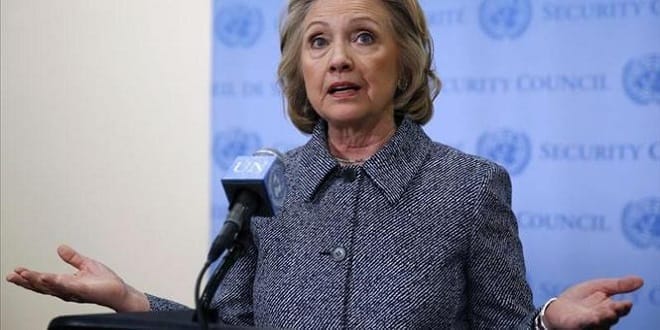The FBI has concluded its investigation into Hillary Clinton's use of a private email server during her time as Secretary of State. In a statement on the matter, FBI director James Comey said that the agency will recommend that Clinton not be charged with a criminal offense over this matter. The final decision ultimately rests with the Department of Justice(DOJ), but Attorney General Loretta Lynch has already stated that the DOJ will follow the FBI's recommendation.
The statement explains some details of the FBI's investigations. Clinton turned over about 30,000 work-related emails to the agency. The agency also discovered thousands of work-related emails that were not turned over by Clinton. These were discovered in different ways. Some were emails which had been deleted over the years, which were recovered through forensic methods. In many cases, only fragments could be recovered rather than entire emails. Other emails were obtained from government archives of those who had corresponded with Clinton.
The emails were then referred to the agency from which the information originated to determine if it was classified or not. Out of the 30,000 emails that were turned over, 110 emails and 52 email chains contained classified information at the time they were sent. 8 of those chains contained information that was Top Secret, 36 chains contained information that was Secret, and 8 were Confidential, the lowest level of classification. About 2000 emails were not classified at the time they were sent, but were later "up-classified" to confidential. From the additional emails the FBI recovered, 3 were contained classified information, 1 at the Secret level and 2 at the Confidential level.
It is also possible that some work related emails were not turned over to the FBI and were also not recovered through other means. When the FBI first requested that Clinton hand over emails, Clinton's lawyers sorted through some 60,000 emails to determine which were personal and which were work-related. This sorting was done based on header information and did not consider the body of the emails. The FBI cannot determine for certain if any of the emails that were not turned over work-related, because they were all deleted once the sorting was over and the lawyers, "cleaned their devices in such a way as to preclude complete forensic recovery." The FBI has conducted interviews with the lawyers and has concluded their was no intentional misconduct in the sorting process.
Although Comey states there is not clear evidence that Clinton and her colleagues intended violate the law, his statement characterizes their behavior as "extremely careless in their handling of very sensitive, highly classified information." Concerning the classified conversations that were found in the investigation, he states, "any reasonable person in Secretary Clinton’s position, or in the position of those government employees with whom she was corresponding about these matters, should have known that an unclassified system was no place for that conversation." Comey also considers it alarming that Clinton's server did not even have a full-time security staff, the likes of which would be used by government agencies or even commercial email services like Gmail.
The FBI also investigated the possibility that Clinton's server was hacked by hostile actors. The agency found no direct evidence that it was hacked but the statement notes, "given the nature of the system and of the actors potentially involved, we assess that we would be unlikely to see such direct evidence." Due to the fact that Clinton's use of the email server was widely known, and the fact that the server had poor security measures, the agency concluded that it is possible that the server was hacked.
At the end, Comey explains his reasoning for not recommending criminal charges. He states, "All the cases prosecuted involved some combination of: clearly intentional and willful mishandling of classified information; or vast quantities of materials exposed in such a way as to support an inference of intentional misconduct; or indications of disloyalty to the United States; or efforts to obstruct justice. We do not see those things here." Comey explains that other individuals in a similar situation to Clinton might be punished, but it would be administrative sanctions, not criminal charges.
Although Clinton will not face criminal charges, there are still civil cases in progress surrounding this issue, which means Clinton might still face some consequences.
Was the FBI right to not charge Clinton, or should she be prosecuted for what she has done? Leave your comments below.







